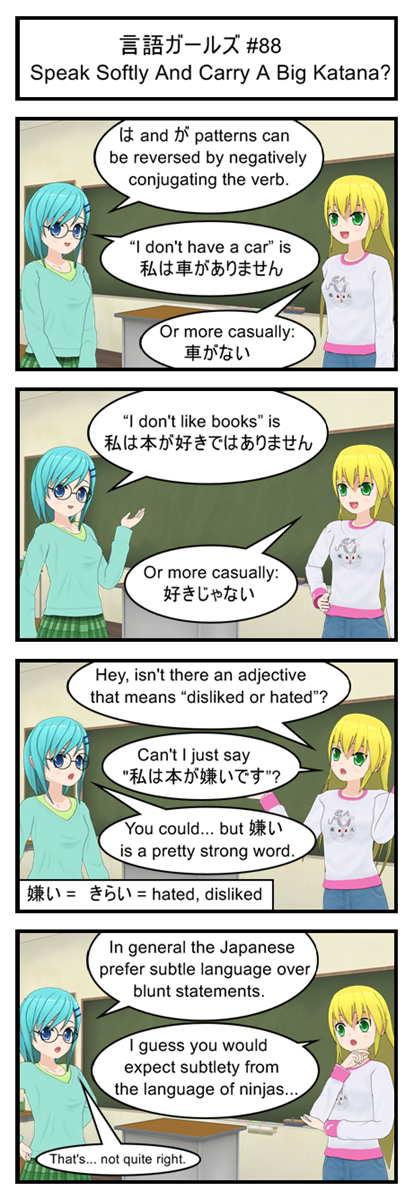
Japanese culture puts a strong value on avoiding direct confrontation with your peers. And since phrases like “I hate X” can cause conflict with people who happen to like X it’s better to just say “I don’t like X very much”. It gets your point across while still being mild enough to not rub other people the wrong way.
After all, the last thing you want is to be known as the foreigner whose first impression involved telling everybody how much he hates the Japanese subway system. I don’t care how motion sick you get, the proper phrasing is “I don’t like riding the subway very much but the system itself is very impressive and high tech”.
Vocabulary
嫌い = きらい = hated, disliked
Transcript
言語ガールズ #88
Speak Softly And Carry A Big Katana?
Blue: は and が patterns can be reversed by negatively conjugating the verb.
Blue: “I don’t have a car” is 私は車がありません
Yellow: Or more casually: 車がない
Blue: “I don’t like books” is 私は本が好きではありません
Yellow: Or more casually: 好きじゃない
Yellow: Hey, isn’t there an adjective that means “disliked or hated”?
Yellow: Can’t I say “私は本が嫌いです”?
Blue: You could… but 嫌い is a pretty strong word.
Blue: In general the Japanese prefer subtle language over blunt statements.
Yellow: I guess you would expect subtlety from the language of ninjas…
Blue: That’s… not quite right.